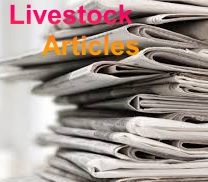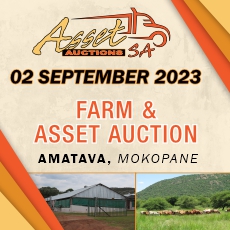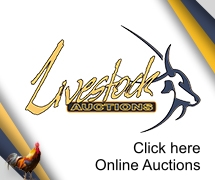Ostrich Products South Africa
Ostrich Products South Africa (OPSA) is part of the Saag Jonker Group of Companies, which is one of the largest privately-owned, vertically-integrated ostrich farming, processing and marketing operations in the world.
The Saag Jonker Group is based in Oudtshoorn in the Western Cape, which is known as the ‘Ostrich Capital’ of South Africa. The company was founded in 1976 by ostrich farmer Saag Jonker, and has since been actively involved in the ostrich industry both locally and internationally. OPSA represents the country’s contribution to all things ostrich on the global market.
The first locally produced ostrich feathers were exported in 1820, which were harvested from wild ostriches. In 1821, however, a law was passed that prohibited the hunting of ostriches, and Ostrich farming started a few decades later in the 1860s in the Karoo and Eastern Cape regions. For decades, South Africa was the sole producer of ostrich feathers and leather in the world, as strict laws prevented the export of live birds. In the late 1860s, the demand for ostrich feathers for the fashion industry also led to the start of ostrich farming in the Southern US and Australia.
Ostrich Products South Africa provides superior quality exotic ostrich leather and feathers to the ostrich industry worldwide. Ostrich feathers are exported, sorted and sized while feathers of superior colorfastness are dyed. Their portfolio consists of a vast variety of ostrich products, as well as a large clientele.
Ostrich Feathers
Ostrich Products South Africa focuses on delivering the highest quality ostrich feathers to local and international markets. Since its inception, OPSA has been the preferred supplier of ostrich feathers for the fashion industry, typically showcased in costumes for theatre, fashion shows, avant-garde performances and carnivals around the world.
There are six types of ostrich feathers used, which includes:
The large plumes or wing quills are called ‘whites’ or ‘feminas’.
Byocks are the three to five black-and-white feathers at the end of the row of large white wing feathers.
The long upper wing coverts are the second and third rows of feathers on the outer edge of the wing, above the wing quills.
The soft, downy feathers underneath the ostrich wing are called ‘floss’.
The long tail feathers are harvested from the tip of the ostrich’s tail.
Sides or ‘bodies’ are the feathers in front of and behind the bird’s powerful thighs.
On average, the body feathers of an ostrich can total 850 - 900 g per bird and the wing feathers around 240 g per bird.
Ostrich feathers are versatile in use, as they serve both functional and decorative purposes. Ostrich Products South Africa product range includes boa’s, neck warmers, hairpieces, pencils and key holders. They also cater to weddings and other occasions, as white feathers are used to decorate rooms or tables and small feathers dyed in bright colours are used as an native to confetti. Ostrich Products South Africa also supply bulk feathers to companies that manufacture ostrich feather dusters and other feathery contraptions.
Ostrich Leather
Ostrich leather is soft, flexible and one of the most durable leathers in the world. Ostrich Products South Africa leather products are available in 98 colours, which allows clients to get as creative as they want with their colour scheme.
During the tanning process, leather is cleaned, softened and preserved. Huge rotating tanks are used in the tanning process, which can take 8 to 10 weeks. Thereafter, the leather is polished, dyed and finished off to the client’s specification.
During the colouring process, a ‘transparent’ dye is applied, allowing the follicles and leather’s natural grain to shine through. The whole ostrich skin is of an irregular shape with only about 25% of the skin, mainly on the back, covered in the distinct and recognisable texture of ostrich skin.
This area with its pattern of feather follicles, is the prized portion of the skin, and used for the manufacture of the most luxurious items, often combining multiple skins to ensure an even-textured pattern and end-product. The rest of the ostrich skin, usually the breast and belly area, is bare or has small follicles.
Ostrich Products South Africa leather products include shoes, belts, handbags, garments and jackets, while smaller leather products include purses, wallets or even cell phone covers. This leather regularly features in the collections of many of the major fashion houses including Gucci, Prada, Hermès and Louis Vuitton.
Sustainability Initiatives of OPSA
OPSA’s owner, the Saag Jonker Group, is spearheaded by Saag Jonker, who believes in the sustainable and ethical farming of ostriches. The Group is also committed to socio-economic development within their community. In 2000, Saag Jonker was chosen amongst several hundred entrants as South Africa’s “Farmer of the Year.”
Ostrich farming is a low-carbon footprint, sustainable and socially responsible farming system that produces healthy and lean animal protein and superior quality by-products. The ethical farming of ostriches is an important part of OPSA’s vision and they adhere to humane farming practices to produce high-quality ostrich product
The Saag Jonker Group is well respected in the local ostrich community, where they have actively pursued the socio-economic development of OPSA’s workers and their families. The workers are regularly awarded accolades in the regional and provincial “Farm Worker of the Year” competitions one of the young farmworkers raised on the farm won the overall provincial title in 2018. Over the years, the Group has invested substantially in housing, sanitation, childcare and recreational facilities for their staff of more than 350 and approximately 1000 dependants.








